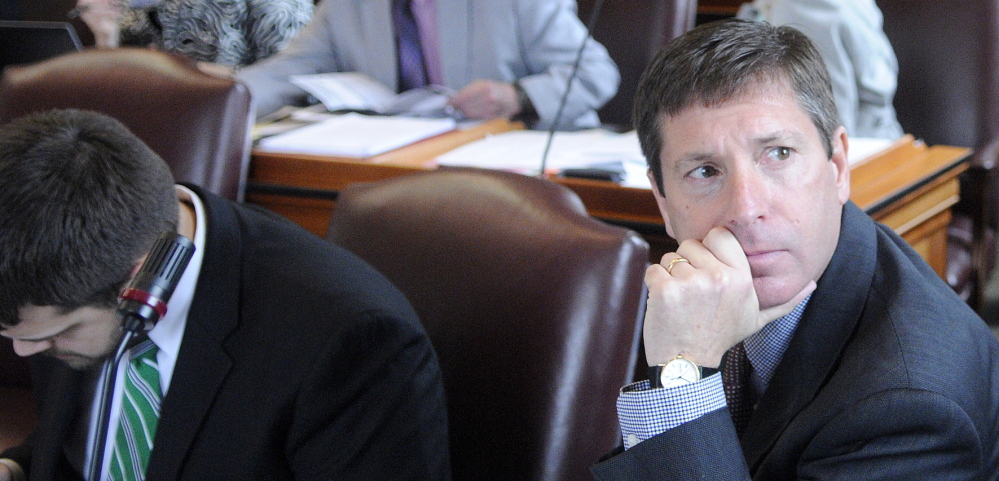When House Republican leader Ken Fredette wrote a column last week congratulating Republicans for blocking the expansion of MaineCare, he told readers to look at Arkansas.
That state’s Medicaid program is already $8 million over budget, he said, which has led to the resignation of a state offical and a demand for a federal bailout.
But that’s not true, said the communications director for the Arkansas Department of Human Services. The state is only a few months into a three-year project, and it’s too early to say if it’s over budget, under budget or right on target, Amy Webb told Scott Thistle of the Lewiston Sun Journal. “Folks who are saying we are over budget are simply making predictions … . At this time, we are not.”
So, if it’s not from the Arkansas DHS, where is Fredette getting his information? His choice of sources tells a story about how information circulates and gets distorted in the political echo chamber.
to the source
The column linked to a blog on the Forbes magazine site written by Josh Archambault, who is described as a contributing writer. Archambault’s day job is as a senior fellow with the Foundation for Government Accountability, a conservative advocacy group based in Florida that is run by former Maine legislator Tarren Bragdon, founder of the Maine Heritage Policy Center, a conservative advocacy group.
Among his sources, Archambault cites The Arkansas Project, a right-wing news website funded by anti-Bill Clinton billionaire Richard Mellon Scaife. During the 1990s, Scaife paid for efforts to invent scandals about the president and his family, including the failed 1970s Whitewater land sale, an alleged drug-dealing operation and the supposed murder of White House counsel Vince Foster, who, according to all reliable sources, committed suicide.
So if Fredette had said, “Advocates who have tried to kill the Affordable Care Act since it was in its cradle think it’s been a disaster so far,” it wouldn’t have made much of a splash.
But when he cites Forbes magazine, it gives his criticism some weight and forces the other side to prove him wrong.
Republicans say that there’s nothing wrong with what Fredette did because Democrats do it all the time with different organizations. That may be true, but it doesn’t make it right.
Questions about how to manage the nation’s health care system are too complicated and important to be subject to all-or-nothing exchanges of manufactured talking points.
This is the kind of thing the LePage administration tried to do by agreeing to pay nearly $1 million in state and federal money for a pile of dubious research from the Alexander Group. Those reports have been discredited by the discovery of multiple examples of plagiarism, but that should not obscure the fact that Gary Alexander is not the independent policy analyst – as advertised – but an activist for a certain policy outcome (cutting welfare programs).
discredited ‘facts’
It’s worth noting that Republicans, including Fredette, still use Alexander’s projection of 100,000 Maine people who would be added to the Medicaid rolls if eligibility had been expanded, not the more accepted figure of up to 70,000. The higher figure was calculated using the prediction of a steep increase in the poverty rate, an opinion that no other reputable economist shares. Alexander may have been discredited, but his “facts” have wormed their way into the debate.
There’s one bright spot here: At least Fredette’s ginned-up source documents didn’t cost the state $1 million. Maybe someone in his office can teach the governor a less expensive way to work the echo chamber.
Send questions/comments to the editors.



Comments are no longer available on this story